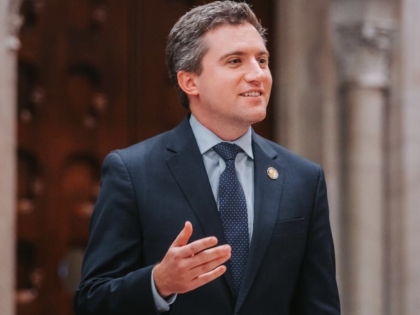
New York lawmakers seek reform to tax incentive policies at economic development hearing
Members of the state Senate gathered in Albany Wednesday for a hearing on economic development with conversation largely anchored by a December 2023 state commissioned report examining the effectiveness of the New York’s tax credits and incentives.
State Sen. James Skoufis told Spectrum News 1 the key takeaway from the hearing and the report is that the state Legislature has work to do when it comes to parsing through which of the programs are actually successful in driving businesses to set up shop to stay in New York state, which are falling flat, and what to do about it.
"A lot of this programming, a lot of this spending is not being spent wisely,” he said. “There has been materially very little done as far as reforms over the past several years, a little bit of transparency, database of deals, but we need to really start talking about the dollars and cents associated with these programs.”
State Sen. Sean Ryan echoed the need for a legislative solution to the states ballooning incentive programs.
“We need to revamp our economic development systems in New York state,” he said. “We’re spending billions of dollars that we’re not getting back, so I hope this hearing opens a broader conversation.”
Lawmakers grilled Empire State Development Commissioner Hope Knight and others on their openness to new methods of tracking the success of incentive programs and the concept of allowing some to sunset after a period of time, as well as business leaders on if the incentives actually help small businesses.
The report itself shows a mixed bag, with some incentives like the Excelsior Jobs Program humming away. Continuing to be a point of contention are the state's entertainment incentives, especially the film and TV tax credit.
The report came back with a $0.31 on the dollar return for that credit, while other reports cited by Empire State Development had the return on investment coming in at over a dollar.
Knight took issue with the lower number and blamed the discrepancy between the various reports on the way in which they were conducted.
“Those reports calculate the return on investment based on a methodology, the methodologies probably are slightly different,” she said.
Brian O’Leary, tax counselor for the Motion Picture Association, also took issue with the report’s findings, saying in his testimony that it "made flawed assumptions and relied on discredited literature, all of which contributed to erroneous conclusions about the true, extensive, positive impacts of New York's thriving film industry.”
He acknowledged that any such program requires oversight.
“It has been a program that has sustained and grown an industry,” he said. “The program is performing well, and it should be thoroughly reviewed on whatever basis the government thinks.”
Heading into next session, with lawmakers expressing an interest in legislative reform in a bipartisan fashion, Knight said she’s ready for those conversations.
“I look forward to working with the lawmakers on looking at these programs during the upcoming legislative session,” she said.
Skoufis acknowledged that Knight has made herself accessible to lawmakers in her time as commissioner, but expressed hope that the collaboration on this issue would go beyond just what is required as part of the budget process.
"There has been a level of responsivness that has not existed at the agency before," he said. "But in terms of what more can be done, I think every agency commissioner should be talking to us in a formal way, beyond just the budget hearings or the very specific type of hearing we had today. They should visit our conference."
